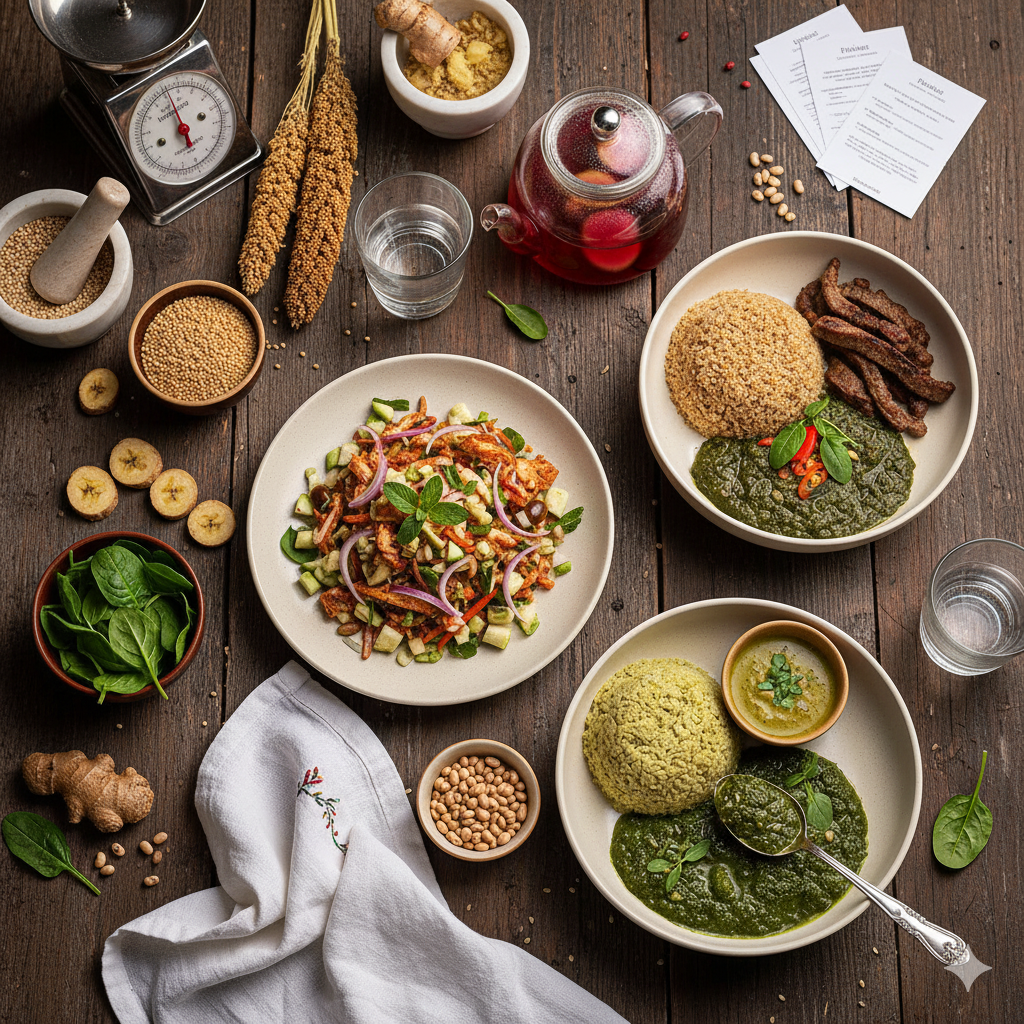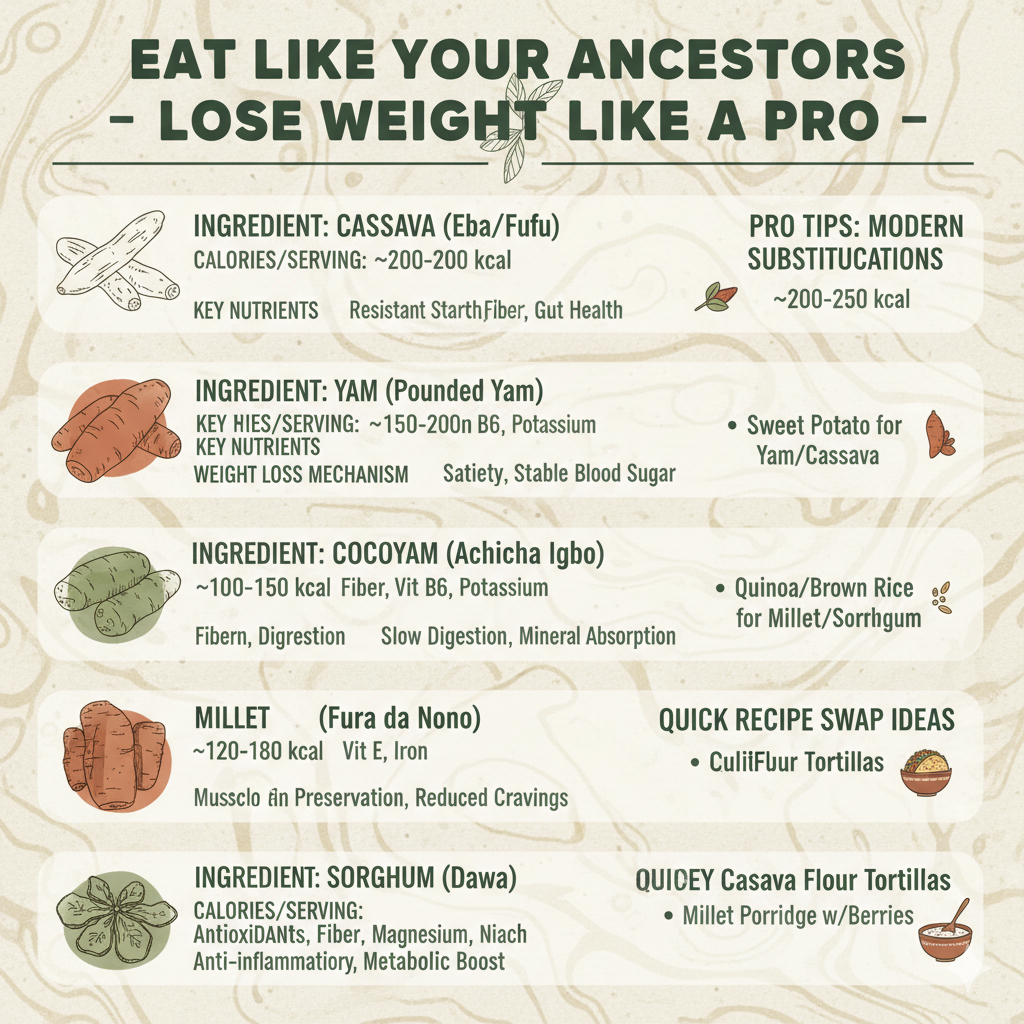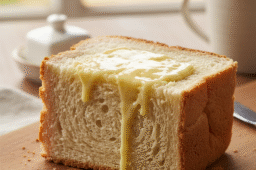
Healthy Nigerian Heritage Meals for Weight Loss
- September 29, 2025
- by
- Khyra
“To eat is a necessity, but to eat intelligently is an art.” — La Rochefoucauld
Common Myth:
“Local food is too starchy and fattening to be healthy!”
Truth? Nigerian heritage meals, when prepared with intention, are some of the most nutrient-dense, fat-burning, metabolism-boosting meals in the world. Let’s show you how.
What if your favourite abacha, tuwo, or amala could help you shed weight — not gain it?
You don’t have to ditch your culture to stay fit. The secret lies not in the dish but in the preparation. Traditional Nigerian meals, rich in yams (ji), beans (ewa/akidi/wake), leafy greens (ugu, efo, aleho), millet (gero), sorghum (dawa) — are naturally high in fibre, low on the glycaemic index, and packed with bioavailable minerals.
Let’s explore how to modernise these ancestral foods for weight loss and longevity, without losing cultural soul.
Can abacha really support digestion and fat loss?
Yes, when done right.
Abacha (African salad) – a beloved Igbo dish is made from shredded cassava but often drowned in palm oil and fried fish.
Instead:
✅ Use a tablespoon of measured red palm oil – a powerful source of tocotrienols (vitamin E variants), known to reduce inflammation and support fat metabolism.
✅ Add plenty of ugba (oil bean), garden eggs, and onions – all rich in prebiotic fibre, which feeds gut flora that regulate appetite and glucose control.
✅ Toss in lean protein like smoked chicken or grilled fish to boost satiety.
“Traditional meals can promote health when we focus on whole ingredients and cooking methods,” says Dr. Chinelo Okafor, Registered Dietitian (LUTH). “It’s not about abandoning culture, it’s about modifying it for today’s lifestyle.”
Is tuwo shinkafa still weight-loss friendly?
Absolutely, when paired strategically.
Tuwo shinkafa (Hausa rice swallow) is made from soft rice flour, typically served with miyan kuka (baobab leaf soup) or miyan taushe (pumpkin stew). The key? Pairing and portions.
✅ Replace white rice flour with millet flour (gero) or sorghum (dawa) – both are high in magnesium, iron, and resistant starch, which helps improve insulin sensitivity and promote fat oxidation.
✅ Add ground flaxseed or soy flour for extra protein.
✅ Load your soups with leafy greens (aleho, spinach) and lean beef or legumes to balance your macronutrients.
Biochemically speaking, millet’s polyphenols and slow-digesting carbs lead to lower post-meal blood sugar spikes, which reduces fat storage.
🍠 Can amala and ewedu become a fat-burning combo?
Yes, and it’s backed by science.
Yoruba cuisine shines here. Amala (made from yam flour or plantain flour) and ewedu (jute leaves) are a power pair.
✅ Amala made from unripe plantain flour has a lower glycaemic index than regular yam flour. It is rich in resistant starch and dopamine precursors that support metabolism and mood.
✅ Ewedu is rich in chlorophyll, vitamin K, and calcium – and recent studies show jute leaf extracts may have anti-diabetic and lipid-lowering effects.
✅ Add gbegiri (bean soup) for extra plant protein and fibre.
A study published in the Nigerian Journal of Nutritional Sciences (2022) revealed that combining fibre-rich swallows with antioxidant-rich soups leads to greater satiety and lower caloric intake over time.
Why are local grains and legumes essential for weight management?
Because they are metabolic gold.
Millet, sorghum, and pulses (beans, lentils, cowpea) found across Nigeria are high in soluble fibre, polyphenols, and plant protein , all proven to:
- Reduce LDL cholesterol
- Support gut microbiome diversity
- Enhance fat oxidation through short-chain fatty acids (SCFAs)
“Beans like black-eyed peas (akidi or ewa oloyin) are superstars,” says Temitope Akinola, MSc, RD, Lagos-based nutritionist. “They’re low in fat, packed with protein, and incredibly satisfying.”
Practical tip? Combine whole grains with legumes (e.g. millet + beans, sorghum + soy) for complete amino acid profiles, just like ancestral diets intended.
How can you modernise Nigerian cooking for fat loss without losing taste?
✅ Steam or roast, don’t fry
✅ Measure palm oil with a spoon – don’t “eyeball” it
✅ Use natural flavour enhancers – fermented locust beans (iru/dawadawa), garlic, ginger, scent leaf
✅ Switch to whole grains and control swallow portions (aim for fist-size)
✅ Drink herbal teas (zobo without sugar, moringa, ginger water) for hydration and detox
What’s the cultural and environmental win?
By going back to traditional foods, you’re not just eating smarter, you’re preserving biodiversity, supporting local farmers, and reducing carbon emissions from imported, ultra-processed food. Sustainable for you, and for Nigeria.
Ready to turn your culture into your health advantage?
🎯 Stop fearing your local food. Embrace it. Rethink it. Own it.
Your ancestors left you a diet rooted in vitality, it’s time to reclaim it with knowledge and creativity.
👇
✅ Want more healthy Nigerian recipes?
Subscribe to our newsletter for weekly insights, meal plans, and weight-loss tips, all rooted in culture, backed by science.








